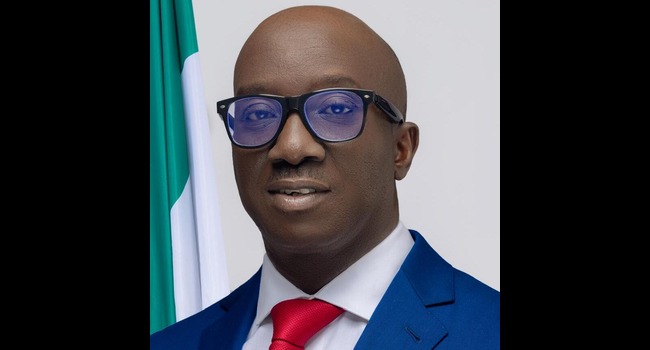The Economic and Financial Crimes Commission (EFCC) has taken a step in its fight against corruption by inviting the suspended chairmen of all 18 local government areas (LGAs) in Edo State for questioning.
In an official letter signed by the EFCC’s Director of Investigation, Abdulkarim Chukkol, the anti-graft agency directed the chairmen to appear with critical documents concerning their payroll and financial accounts.
The letter, dated December 17, was addressed to the Secretary to the State Government, signaling a significant development in the ongoing allegations against the chairmen.
Chukkol’s letter specified that the chairmen of Akoko-Edo, Egor, Esan Central, Esan North East, Esan South East, and Esan West were to appear at the EFCC office on Thursday, December 19.
Those from Etsako Central, Etsako East, and Etsako West LGAs are also included in the Thursday schedule.
The remaining nine chairmen, representing Igueben, Ikpoba Okha, Orhionmwon, Ovia North East, Ovia South West, Owan East, Owan West, and Uhunmwode, have been directed to report on Friday, December 20.
This mass invitation by the EFCC is unprecedented and has drawn attention to the alleged financial mismanagement in Edo’s local governments.
The agency has requested comprehensive documentation, including certified true copies of payroll records and staff strength.
Chukkol further asked for details of accounts used for paying staff salaries, reserve funds for salary emergencies, and statements of these accounts dating back to January 1.
Citing Section 38(1) and (2) of the EFCC (Establishment) Act, 2004, the letter emphasized the agency’s authority to obtain the documents.
The summons comes just two days after the Edo State House of Assembly suspended the chairmen and their deputies for alleged misconduct and insubordination.
The lawmakers’ decision followed accusations that the officials failed to submit financial statements as directed by Governor Monday Okpebholo.
An anonymous source within the assembly described the situation as “a serious breach of trust and governance,” sparking widespread public concern.
“This is about accountability. The people of Edo deserve to know how their funds are being managed,” the source said.
The suspended chairmen are now at the center of what promises to be an intense investigation by the EFCC.
A political analyst, Tunde Abiola, described the EFCC’s move as a “necessary intervention” to curb potential financial malpractice.
“The EFCC has a duty to ensure public funds are not mismanaged,” Abiola said. “This investigation will send a strong message to public officeholders.”
Public reactions have been mixed, with some hailing the EFCC for taking a stand against corruption.
Others, however, view the probe as a politically motivated action designed to embarrass the chairmen.
“If this is about transparency, then why now? The timing raises questions,” said a local government employee who spoke on condition of anonymity.
The situation has also brought attention to the broader challenges of managing local government funds in Nigeria.
Governance experts have long criticized the lack of accountability and transparency in local administrations.
“This is a wake-up call for every local government in Nigeria,” said Bolaji Idowu, a public finance expert.
The Edo State government has remained tight-lipped on the matter, refusing to comment on the EFCC’s summons.

